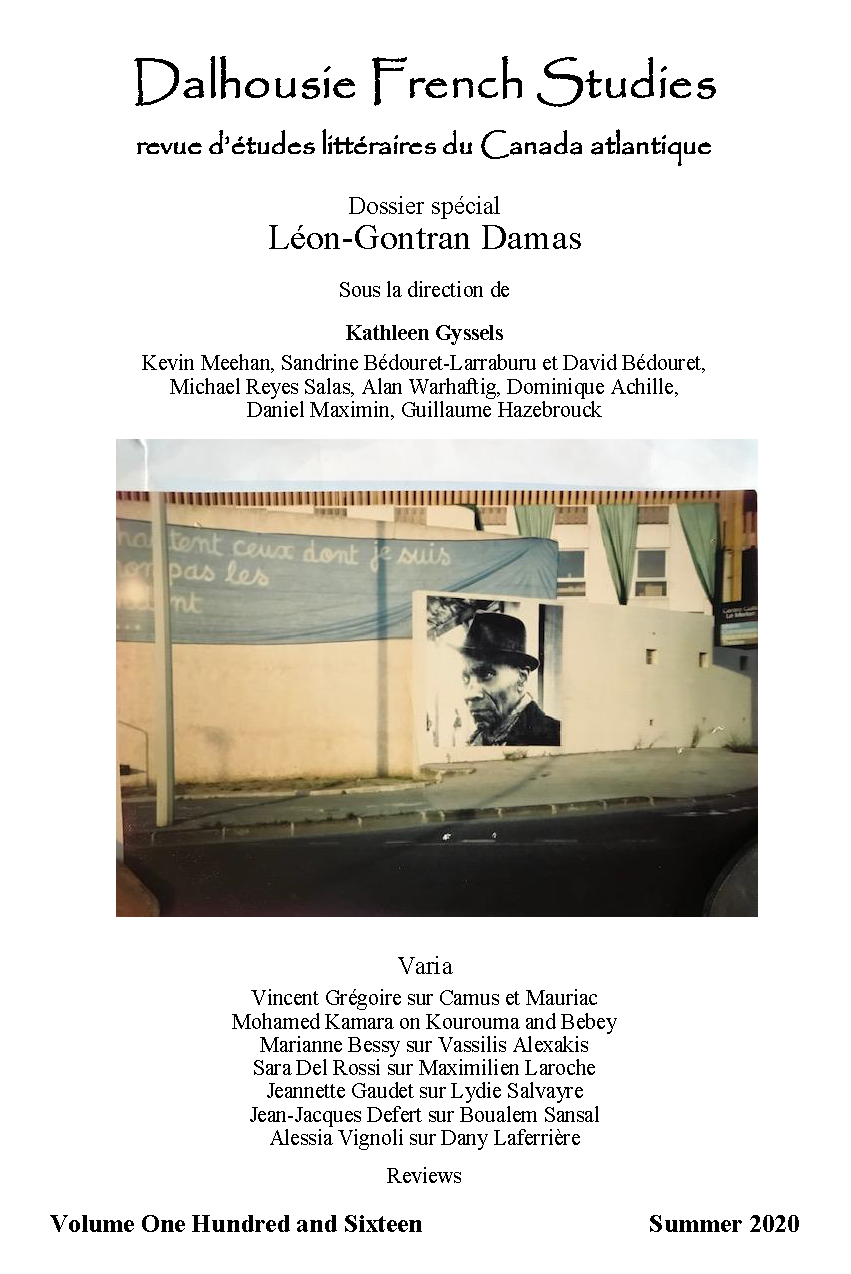Le Paris souterrain de Vassilis Alexakis dans L‘Enfant grec : catabase funeste ou lieu de renaissance ?
Résumé
Cet article vise à interpréter la présence du sous-sol parisien dans le roman L‘Enfant grec (2012) de Vassilis Alexakis, vingt après que ce dernier ait représenté ce même espace souterrain dans Avant. Après un bref résumé de l‘oeuvre, une mise au point sur l‘importance du souterrain dans l‘imaginaire collectif et une brève présentation du sous-sol parisien en littérature, j‘analyse la valeur métaphorique que l‘auteur confère aux égouts, catacombes, carrières et sous-sols, réels ou imaginaires, qui caractérisent le schéma géographique de L‘Enfant grec et qui occupent une place croissante au fil des pages. Cet appel du sous-sol donne-t-il forme, comme dans Avant, à un rejet spatial de la capitale française ou bien s‘agit-il d‘une évocation plus traditionnelle d‘espaces souterrains associés à la mort ? Existe-t-il un lien entre ces espaces en sous-sol et l‘espace de la création littéraire ? Même si, dans un premier temps, tout peut laisser à penser que l‘auteur a créé une catabase funeste, je conclue que le Paris souterrain d‘Alexakis dans L‘Enfant grec est un lieu cathartique de renaissance qui permet au narrateur d‘apaiser sa crainte de la mort et de se reconcentrer sur l‘espace ludique de la création littéraire.
This article aims to interpret the presence of the Parisian underground in Vassilis Alexakis‘ novel L‘Enfant grec (2012), twenty years after the author represented the same underground space in Avant. After a brief summary of the work, some clarifications on the importance of the underground in the collective imagination, and a brief presentation of the Parisian underground in literature, I analyze the metaphorical value that the author attributes to sewers, catacombs, quarries and basements, real or imaginary, which are all characteristic of the geographical framework of L‘Enfant grec and which occupy increasing textual space as the novel progresses. Does this call of the underground give shape, as in Avant, to a spatial rejection of the French capital, or it is here a more traditional evocation of underground spaces associated with death? Is there a link between these recurrent underground spaces and the space of literary creation? Even if, at first glance, everything may suggest that the author has created an ill-fated katabasis, I conclude that Alexakis‘ underground Paris in L‘Enfant grec is a cathartic place of rebirth allowing the narrator to alleviate his fear of death and to refocus on the playful space of literary creation.


